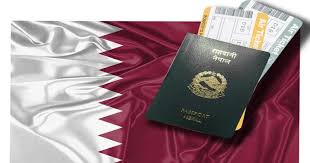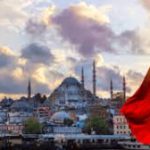Turkey, known for its rich culture, historical landmarks, and stunning landscapes, attracts millions of travelers from around the world every year. For Nepali citizens eager to explore the beauty and charm of this fascinating country, obtaining a Turkey visa for Nepali is a necessary step in the process. Whether you’re visiting for tourism, business, or any other purpose, understanding the visa requirements and application procedures is essential for a smooth and hassle-free journey.
Understanding Turkey Visa for Nepali Citizens
Nepali citizens, like travelers from many other countries, are required to apply for a visa before entering Turkey. Fortunately, Turkey offers a variety of visa options depending on the purpose of your visit, such as tourist, business, and student visas. It’s important to familiarize yourself with these options to choose the most suitable visa for your travel plans. The Turkey visa for Nepali citizens can be obtained through an online application process or by visiting the Turkish Embassy in Kathmandu.
Types of Turkey Visas Available for Nepali Travelers
- Tourist Visa
The most common type of visa that Nepali citizens apply for is the tourist visa. If you wish to explore Turkey’s famous sites like the Hagia Sophia, the Blue Mosque, or the ruins of Ephesus, this is the right visa for you. The tourist visa is usually valid for a stay of up to 90 days within a 180-day period. Applicants must prove their financial stability to cover the costs of their stay, such as hotel accommodations and return airfare. - Business Visa
If you are traveling to Turkey for business purposes, you will need to apply for a business visa. This visa allows you to attend meetings, conferences, or conduct business-related activities. To apply for this visa, you must provide an invitation letter from a Turkish company or organization along with other required documents. - Student Visa
Nepali students wishing to study in Turkey can apply for a student visa. To obtain this visa, you must have a valid acceptance letter from a recognized Turkish educational institution. You will also need to show proof of sufficient funds to cover your tuition and living expenses during your stay in Turkey.
Application Process for Turkey Visa for Nepali Citizens
The application process for a Turkey visa for Nepali citizens can be completed through two main channels: the e-Visa system and the Turkish Embassy in Kathmandu. Here’s an overview of each process:
- Online e-Visa Application
For certain visa types, Nepali citizens can apply for an e-Visa online. The e-Visa is a quick and convenient way to obtain your travel authorization, especially for those applying for a tourist or business visa. To apply, visit the official Turkish e-Visa website, fill in the required details such as passport information, travel dates, and purpose of visit. You will also need to upload a copy of your passport and pay the visa fee online. Once your application is processed, you will receive your e-Visa via email, which you must print and carry with you when traveling to Turkey. - Embassy Visa Application
If you are applying for a visa that is not available through the e-Visa system or if you prefer to submit your application in person, you can visit the Turkish Embassy in Kathmandu. The embassy will require you to provide the following documents:- A valid Nepali passport with at least six months of validity
- Completed visa application form
- Passport-sized photographs
- Proof of sufficient funds for the trip
- Flight and hotel bookings
- Invitation letter (if applicable)
- Any other supporting documents depending on the type of visa you are applying for
After submitting your documents, you may be asked to attend an interview at the embassy. The processing time for embassy applications may take longer compared to the e-Visa system, so it’s important to apply well in advance of your planned travel date.
Requirements for a Turkey Visa for Nepali Citizens
While the specific requirements may vary depending on the type of visa, here are the general documents and conditions you need to fulfill when applying for a Turkey visa for Nepali citizens:
- Valid Passport
Your passport should be valid for at least six months beyond your planned date of departure from Turkey. It should also have at least one blank page for the visa stamp. - Visa Application Form
You must complete the visa application form accurately. Any incorrect or incomplete information may lead to delays or rejection of your application. - Photographs
Recent passport-sized photographs are required as part of your application. Ensure that the photos meet the specifications outlined by the Turkish authorities. - Proof of Financial Stability
You must provide evidence that you have sufficient funds to support yourself during your stay in Turkey. This can include bank statements, income certificates, or sponsorship letters. - Travel Itinerary
A detailed itinerary showing your flight details and hotel bookings in Turkey is necessary. This will help the authorities confirm your travel plans. - Travel Insurance
While not always required, some visa applications may ask for travel insurance that covers medical emergencies while in Turkey.
Tips for a Smooth Turkey Visa Application
- Apply Early: It’s always a good idea to apply for your visa well in advance of your travel date, as visa processing can take time, especially during peak travel seasons.
- Check for Updates: Always check the official Turkish government website for the latest visa information and requirements, as they may change over time.
- Double-Check Documents: Ensure that all required documents are in order before submitting your application to avoid delays. TURKEY TRANSIT VISA FOR INDIANS
Conclusion
Obtaining a Turkey visa for Nepali citizens is a straightforward process if you follow the right steps and provide all necessary documentation. Whether you’re traveling for leisure, business, or education, Turkey offers a wide range of experiences that are sure to leave a lasting impression. With the right visa in hand, you can enjoy a seamless journey to explore one of the most historically rich and culturally diverse countries in the world.


